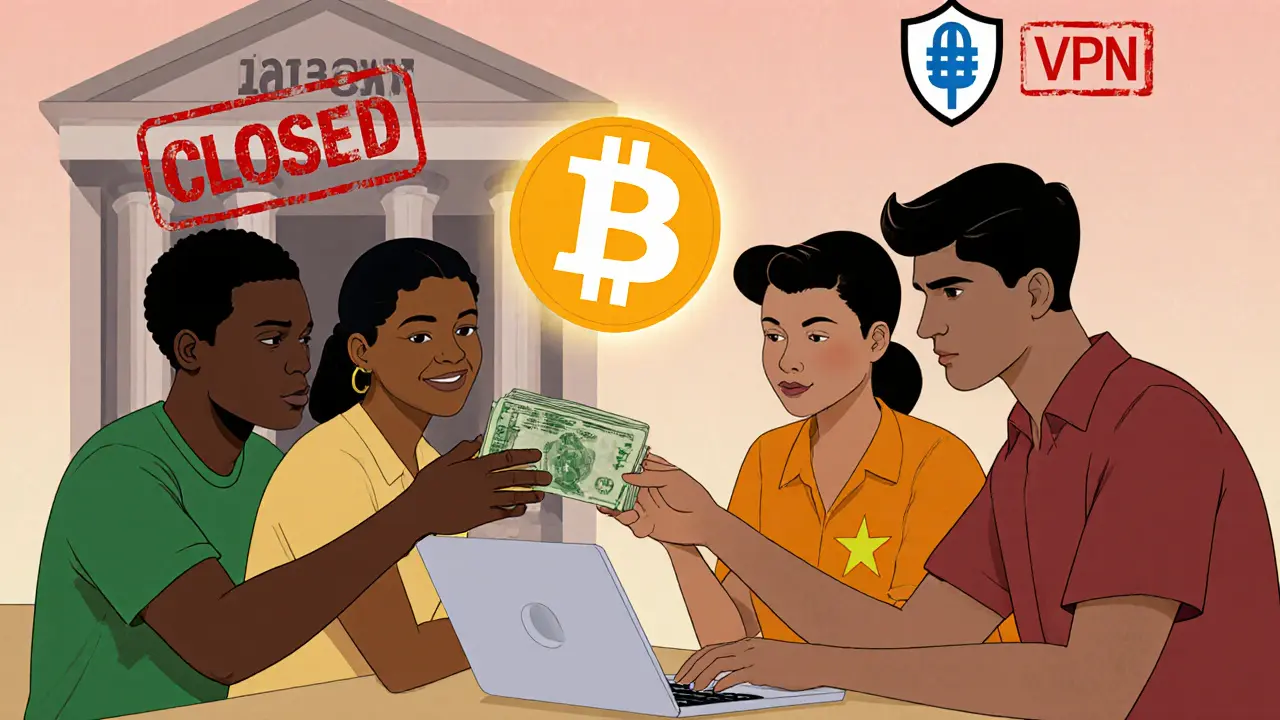Banking Restrictions and Crypto: What You Can’t Do and How Traders Get Around It
When your bank blocks crypto deposits or freezes your account for trading Bitcoin, you’re facing a banking restriction, a policy enforced by financial institutions or governments that limits or outright bans cryptocurrency-related transactions. Also known as crypto banking ban, it’s not just about suspicion—it’s often about compliance with anti-money laundering rules, tax enforcement, or outright political opposition to decentralized finance. This isn’t theoretical. In countries like Tunisia and Nigeria, banks have shut down accounts linked to Binance P2P. In India, banks refuse to process payments for crypto exchanges—even though trading itself isn’t illegal. And in places like Vietnam and the UAE, new tax laws and licensing rules are forcing exchanges to cut off users who can’t prove their identity or source of funds.
These restrictions don’t just affect big traders. They hit everyday people trying to protect savings from inflation or send money across borders. That’s why crypto P2P, a decentralized method of buying and selling cryptocurrency directly between users without a traditional exchange. Also known as peer-to-peer trading, it’s become the lifeline for millions in places where banks won’t help. In Tunisia, traders use WhatsApp and Telegram to swap USDT for cash. In Nigeria, users pay in airtime or mobile money to avoid VASP licensing traps. And in India, people use UPI to buy crypto from strangers—despite the 1% TDS tax automatically deducted on every trade. These aren’t loopholes. They’re adaptations.
What’s driving these restrictions? crypto regulation, government rules that define how digital assets can be traded, taxed, or held. Also known as cryptocurrency tax frameworks, they’re not all bad. The UAE’s removal from the FATF grey list in 2024 didn’t stop crypto—it made it safer by forcing exchanges to follow real AML rules. But in places with vague or hostile rules, like India’s 30% crypto tax with no deductions, the result is chaos: traders hide transactions, exchanges vanish, and scams fill the void. The real issue isn’t crypto itself—it’s whether governments treat it as a tool for financial freedom or just another asset to control.
What you’ll find below are real stories from the frontlines. How traders in Tunisia bypass a full crypto ban. Why Vietnam’s 0.1% tax is worse than it sounds. How India’s TDS rule quietly steals money from every trade. And why exchanges like FutureX Pro and QB crypto are scams built to exploit people locked out of normal banking. These aren’t abstract policy debates. They’re daily survival tactics for people who refuse to let banks decide how they use their money.

How Citizens in Banking-Restricted Countries Access Crypto Exchanges
Despite banking bans and legal risks, citizens in countries like Nigeria, Vietnam, and Iran are using P2P trading, VPNs, and no-KYC exchanges to access crypto. Here’s how they do it - and what it really costs.
© 2026. All rights reserved.